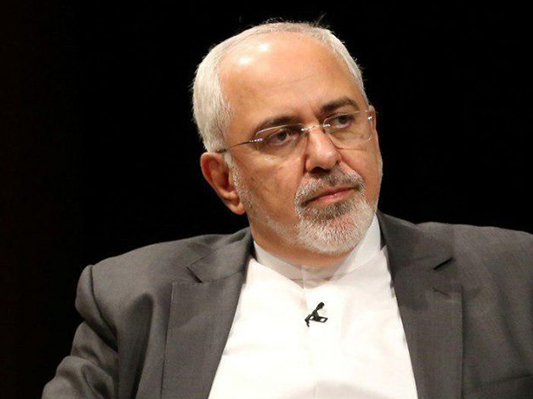Mohammad Javad Zarif attended a press conference in Pakistan and answered the questions raised by the country’s media after making a speech at the Institute of Strategic Studies Islamabad (ISSI) while on a visit to Pakistan.
Iran-Saudi Arabia Ties
Questioned on whether Tehran has welcomed proposals to revive its relations with Riyadh, Zarif said, “If Saudi Arabia comes under whatever foreign aggression, Iran will be the first country to go into action to help that country.”
He then highlighted the importance of security and stability in the Middle East region.
“We believe the security and stability of neighbouring and regional countries is the same as the security and stability of the Islamic Republic of Iran,” he said.
The top diplomat expressed hope that Saudi Arabia would have the same feeling as Iran and be ready to settle the issues on which the two sides are divided.
Negotiating with Riyadh
Zarif went on to say that Tehran has announced its preparedness for negotiations with Riyadh.
“We have declared our readiness to begin talks with Saudi Arabia, and welcomed measures adopted by former Pakistani Prime Minister Nawaz Sharif to help the dialogue get underway,” Iran’s foreign minister added.
He then referred to the Saudis’ mindset regarding their relations with Iran.
“The problem is that the Saudis think it will be in their interest if the world thinks they are being threatened [by Iran],” said Zarif.
He said Riyadh and Tehran are both involved in regional developments.
“We believe we cannot separate Saudi Arabia from regional developments, but at the same time we believe the Islamic Republic of Iran cannot be separated from the regional developments, either,” he noted.
War in Iraq, Syria
Elsewhere in his remarks, Iran’s diplomacy chief elaborated on the irreparable damage and destruction caused by acts of terror in Iraq and Syria.
“Both Iran and Saudi Arabia can invest in the reconstruction of Iraq and Syria, and to that end, they should resolve their problems at the negotiating table,” Zarif underlined.
“There is no reason for animosity between us and Saudi Arabia, but we are telling them that they cannot ensure their security from beyond their borders,” Zarif said.
Iran-Pakistan Relations
On Tehran-Islamabad ties on the security front, the foreign minister said Iran will not allow anybody or any group to use its soil against Pakistan, and “we also believe that Pakistan, in turn, will not allow its soil to be used against Iran by terrorist elements.”
Future of JCPOA
Zarif also touched upon US President Donald Trump’s anti Iran measures regarding the JCPOA.
“The nuclear deal between Iran and the West is an international agreement, and if Trump wants to violate the agreement, it will definitely be isolated in the world,” he said.
“The US is not observing this international deal because it does not want the Islamic Republic of Iran to reap its benefits. Therefore, the US government is practically breaching the JCPOA,” the top diplomat said.
“We believe the EU should give a clear message to the Americans, and that would be: if they continue to violate the JCPOA or seek to change it, they will definitely face international isolation.”
Regional Cooperation & ISIS Threats
Zarif also answered a question about the threats made by the ISIS terror group.
“The presence of the ISIS Takfiri terrorist group in the region is jeopardizing the security of all countries,” he said.
“Bloody rivalries erupt between ISIS and the Taliban in Afghanistan every now and then, which can pose a challenge to the security of Pakistan, Iran, China and Russia in the region.”
Iran’s diplomacy chief then underscored the necessity of regional cooperation to ensure security.
“Regional and neighbouring countries should help restore security and stability to Afghanistan. We support any process of dialogue in Afghanistan, including the talks involving the Taliban,” Zarif underlined.
